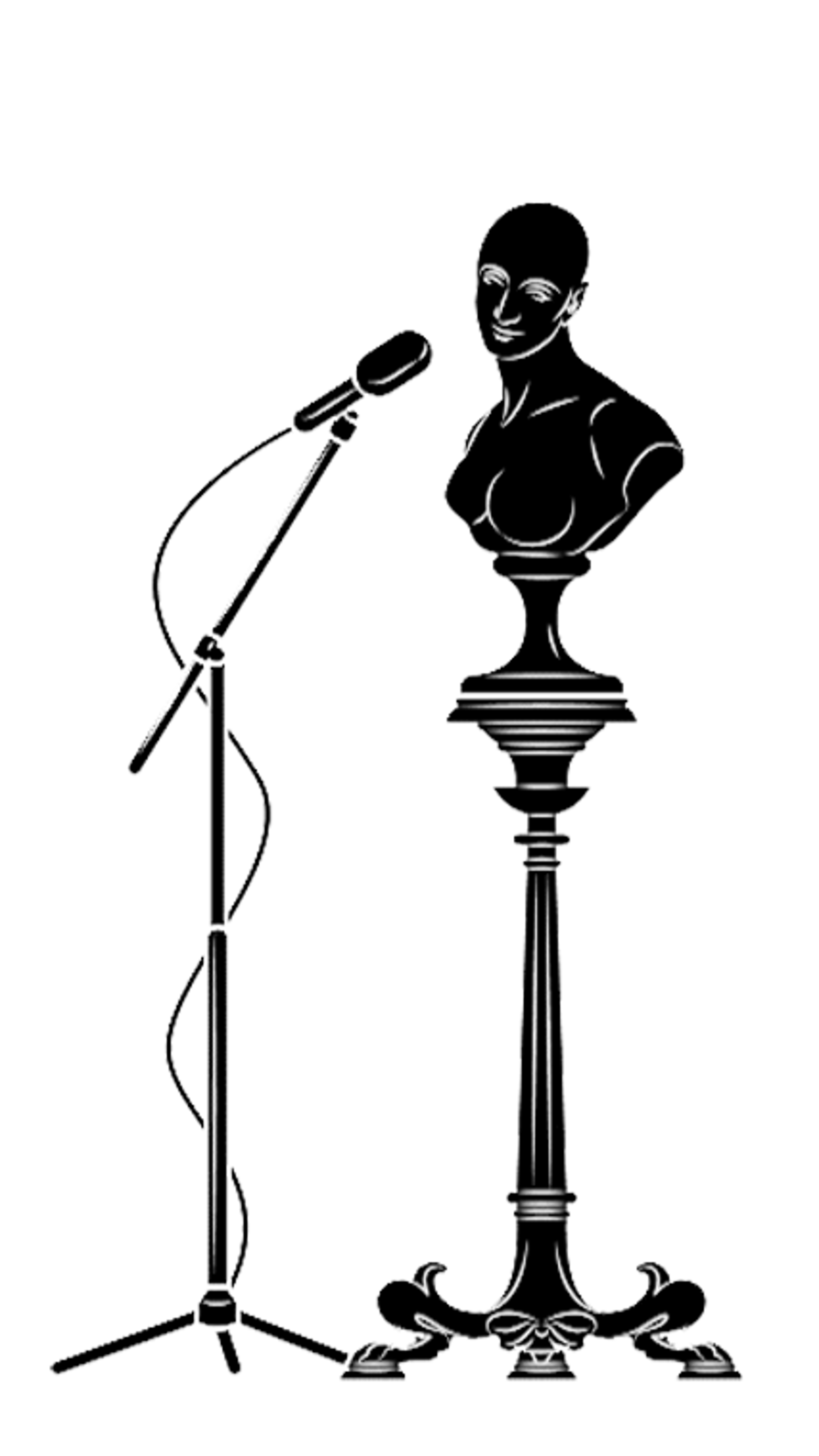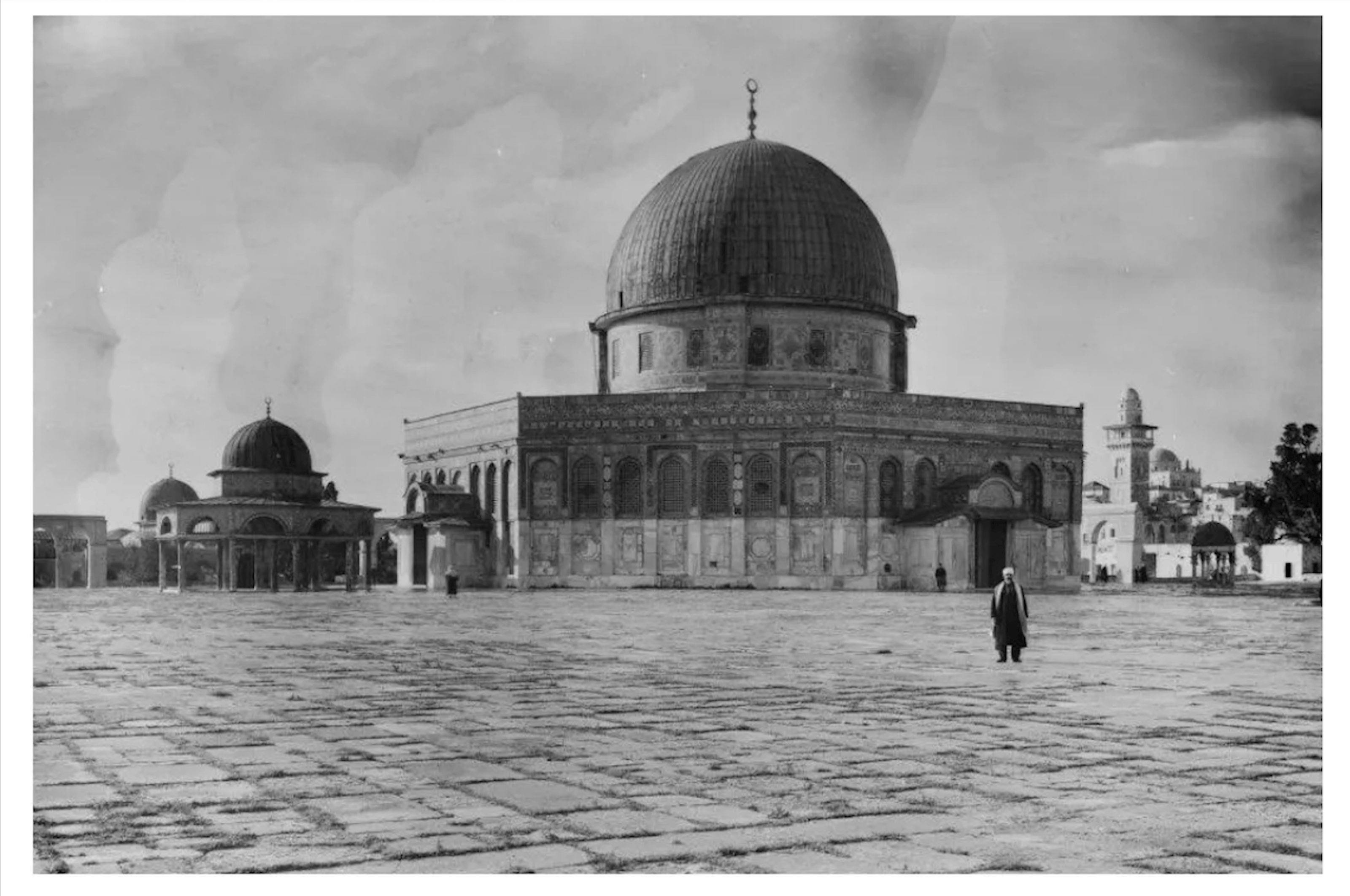
For a few years during the early 1990s, I lived in Jerusalem for several months at a time, doing research in the private libraries of some of the city's oldest families, including my own. With my wife and children, I stayed in an apartment belonging to a Khalidi family waqf, or religious endowment, in the heart of the cramped, noisy Old City. From the roof of this building, there was a view of two of the greatest masterpieces of early Islamic architecture: The shining golden Dome of the Rock was just over three hundred feet away on the Haram al-Sharif. Beyond it lay the smaller silver-gray cupola of the al-Aqsa Mosque, with the Mount of Olives in the background.1 In other directions one could see the Old City's churches and synagogues.
Just down Bab al-Silsila Street was the main building of the Khalidi Library, which was founded in 1899 by my grandfather, Hajj Raghib al-Khalidi, with a bequest from his mother, Khadija al-Khalidi.2 The library houses more than twelve hundred manuscripts, mainly in Arabic (some in Persian and Ottoman Turkish), the oldest dating back to the early eleventh century.3 Including some two thousand nineteenth-century Arabic books and miscellaneous family papers, the collection is one of the most extensive in all of Palestine that is still in the hands of its original owners.4
At the time of my stay, the main library structure, which dates from around the thirteenth century, was undergoing restoration, so the contents were being stored temporarily in large cardboard boxes in a Mameluke-era building connected to our apartment by a narrow stairway. I spent over a year among those boxes, going through dusty, worm-eaten books, documents, and letters belonging to generations of Khalidis, among them my great-great-great uncle, Yusuf Diya al-Din Pasha al-Khalidi.5* Through his papers, I discovered a worldly man with a broad education acquired in Jerusalem, Malta, Istanbul, and Vienna, a man who was deeply interested in comparative religion, especially in Judaism, and who owned a number of books in European languages on this and other subjects.
Yusuf Diya was heir to a long line of Jerusalemite Islamic scholars and legal functionaries; his father, al-Sayyid Muhammad 'Ali al-Khalidi, had served for some fifty years as deputy qadi and chief of the Jerusalem Shari’a court secretariat. But at a young age Yusuf Diya sought a different path for himself. After absorbing the fundamentals of a traditional Islamic education, he left Palestine at the age of eighteen—without his father's approval, we are told—to spend two years at a British Church Mission Society school in Malta. From there he went to study at the Imperial Medical School in Istanbul, after which he attended the city's Robert College, recently founded by American Protestant missionaries. For five years during the 1860s, Yusuf Diya attended some of the first institutions in the region that provided a modern Western-style education, learning English, French, German, and much else. It was an unusual trajectory for a young man from a family of Muslim religious scholars in the mid-nineteenth century.
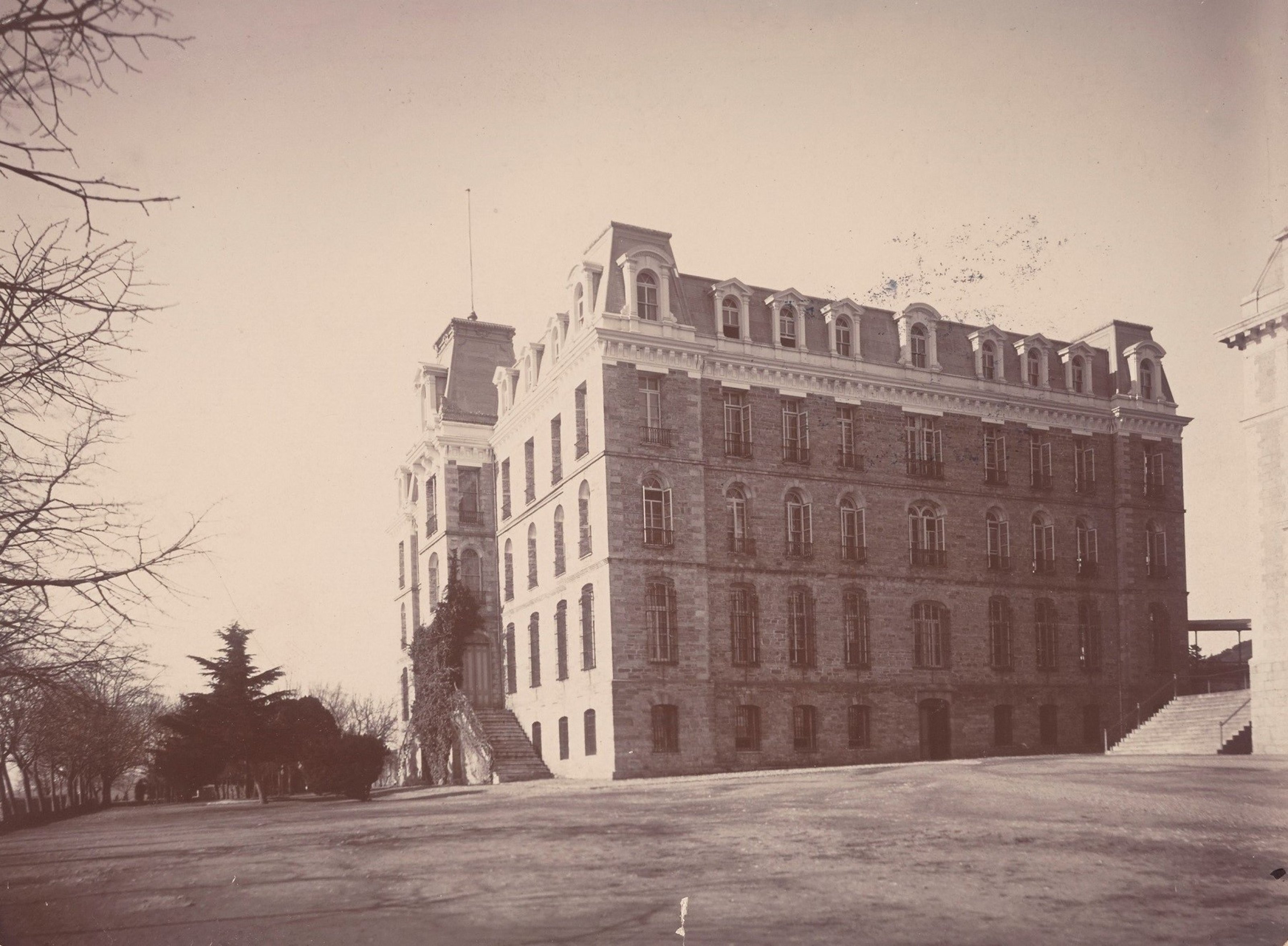
Having obtained this broad training, Yusuf Diya filled various roles as an Ottoman government official-translator in the Foreign Ministry; consul in the Russian port of Poti on the Black Sea; governor of districts in Kurdistan, Lebanon, Palestine, and Syria; and mayor of Jerusalem for nearly a decade with stints teaching at the Royal Imperial University in Vienna. He was also elected as the deputy from Jerusalem to the short-lived Ottoman parliament established in 1876 under the empire's new constitution, earning Sultan 'Abd al-Hamid's enmity because he supported parliamentary prerogatives over executive power.6
In line with family tradition and his Islamic and Western education, al-Khalidi became an accomplished scholar as well. The Khalidi Library contains many books of his in French, German, and English, as well as correspondence with learned figures in Europe and the Middle East. Additionally, old Austrian, French, and British newspapers in the library show that Yusuf Diya regularly read the overseas press. There is evidence that he received these materials via the Austrian post office in Istanbul, which was not subject to the draconian Ottoman laws of censorship.7
As a result of his wide reading, as well as his time in Vienna and other European countries, and from his encounters with Christian missionaries, Yusuf Diya was fully conscious of the pervasiveness of Western anti-Semitism. He had also gained impressive knowledge of the intellectual origins of Zionism, specifically its nature as a response to Christian Europe's virulent anti-Semitism. He was undoubtedly familiar with Der Judenstaat by the Viennese journalist Theodor Herzl, published in 1896, and was aware of the first two Zionist congresses in Basel, Switzerland, in 1897 and 1898.8 (Indeed, it seems clear that Yusuf Diya knew of Herzl from his own time in Vienna.) He knew of the debates and the views of the different Zionist leaders and tendencies, including Herzl’s explicit call for a state for the Jews, with the "sovereign right" to control immigration. Moreover, as mayor of Jerusalem he had witnessed the friction with the local population prompted by the first years of proto-Zionist activity, starting with the arrival of the earliest European Jewish settlers in the late 1870s and early 1880s.
Herzl, the acknowledged leader of the growing movement he had founded, had paid his sole visit to Palestine in 1898, timing it to coincide with that of the German kaiser Wilhelm II. He had already begun to give thought to some of the issues involved in the colonization of Palestine, writing in his diary in 1895:
“We must expropriate gently the private property on the estates assigned to us. We shall try to spirit the penniless population across the border by procuring employment for it in the transit countries, while denying it employment in our own country. The property owners will come over to our side. Both the process of expropriation and the removal of the poor must be carried out discreetly and circumspectly.”9
Yusuf Diya would have been more aware than most of his compatriots in Palestine of the ambition of the nascent Zionist movement, as well as its strength, resources, and appeal. He knew perfectly well that there was no way to reconcile Zionism's claims on Palestine and its explicit aim of Jewish statehood and sovereignty there with the rights and well-being of the country's indigenous inhabitants. It is for these reasons, presumably, that on March 1, 1899, Yusuf Diya sent a prescient seven-page letter to the French chief rabbi, Zadoc Kahn, with the intention that it be passed on to the founder of modern Zionism.
The letter began with an expression of Yusuf Diya's admiration for Herzl, whom he esteemed "as a man, as a writer of talent, and as a true Jewish patriot, and of his respect for Judaism and for Jews, who he said were "our cousins," referring to the Patriarch Abraham, revered as their common forefather by both Jews and Muslims.10 He understood the motivations for Zionism, just as he deplored the persecution to which Jews were subject in Europe. In light of this, he wrote, Zionism in principle was “natural, beautiful and just" and, "who could contest the rights of the Jews in Palestine? My God, historically it is your country!"
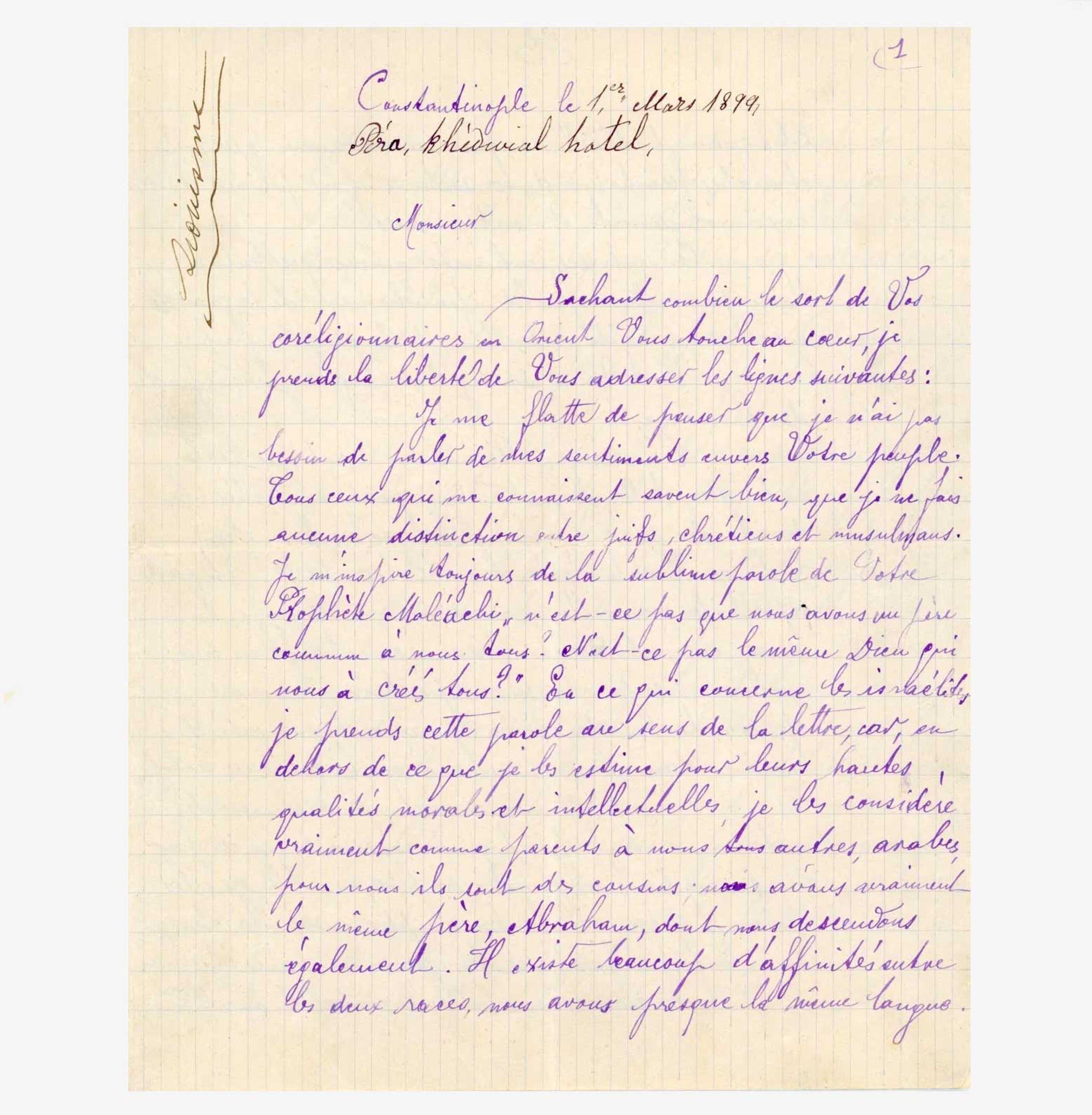
This sentence is sometimes cited, in isolation from the rest of the letter, to represent Yusuf Diya’s enthusiastic acceptance of the entire Zionist program in Palestine. However, the former mayor and deputy of Jerusalem went on to warn of the dangers he foresaw as a consequence of the implementation of the Zionist project for a sovereign Jewish state in Palestine. The Zionist idea would sow dissension among Christians, Muslims, and Jews there. It would imperil the status and security that Jews had always enjoyed throughout the Ottoman domains. Coming to his main purpose, Yusuf Diya said soberly that whatever the merits of Zionism, the "brutal force of circumstances had to be taken into account." The most important of them were that "Palestine is an integral part of the Ottoman Empire, and more gravely, it is inhabited by others." Palestine already had an indigenous population that would never accept being superseded. Yusuf Diya spoke "with full knowledge of the facts," asserting that it was "pure folly" for Zionism to plan to take over Palestine. "Nothing could be more just and equitable," than for "the unhappy Jewish nation" to find a refuge elsewhere. But, he concluded with a heartfelt plea, "in the name of God, let Palestine be left alone."
Herzl’s reply to Yusuf Diya came quickly, on March 19. His letter was probably the first response by a founder of the Zionist movement to a cogent Palestinian objection to its embryonic plans for Palestine. In it, Herzl established what was to become a pattern of dismissing as insignificant the interests, and sometimes the very existence, of the indigenous population. The Zionist leader simply ignored the letter's basic thesis, that Palestine was already inhabited by a population that would not agree to be supplanted. Although Herzl had visited the country once, he, like most early European Zionists, had not much knowledge of or contact with its native inhabitants. He also failed to address al-Khalidi’s well-founded concerns about the danger the Zionist program would pose to the large, well-established Jewish communities all over the Middle East.
Glossing over the fact that Zionism was ultimately meant to lead to Jewish domination of Palestine, Herzl employed a justification that has been a touchstone for colonialists at all times and in all places and that would become a staple argument of the Zionist movement: Jewish immigration would benefit the indigenous people of Palestine. "It is their well-being, their individual wealth, which we will increase by bringing in our own." Echoing the language he had used in Der Judenstaat, Herzl added: “In allowing immigration to a number of Jews bringing their intelligence, their financial acumen and their means of enterprise to the country, no one can doubt that the well-being of the entire country would be the happy result."11
Most revealingly, the letter addresses a consideration that Yusuf Diya had not even raised. "You see another difficulty, Excellency, in the existence of the non-Jewish population in Palestine. But who would think of sending them away?”12 With his assurance in response to al-Khalidi’s unasked question, Herzl alludes to the desire recorded in his diary to "spirit” the country's poor population "discreetly" across the borders.13 It is clear from this chilling quotation that Herzl grasped the importance of "disappearing" the native population of Palestine in order for Zionism to succeed. Moreover, the 1901 charter that he co-drafted for the Jewish-Ottoman Land Company includes the same principle of the removal of inhabitants of Palestine to "other provinces and territories of the Ottoman Empire."14 Although Herzl stressed in his writings that his project was based on "the highest tolerance" with full rights for all,15 what was meant was no more than toleration of any minorities that might remain after the rest had been moved elsewhere.
Herzl underestimated his correspondent. From al-Khalidi's letter it is clear that he understood perfectly well that at issue was not the immigration of a limited "number of Jews" to Palestine, but rather the transformation of the entire land into a Jewish state. Given Herzl’s reply to him, Yusuf Diya could only have come to one of two conclusions. Either the Zionist leader meant to deceive him by concealing the true aims of the Zionist movement, or Herzl simply did not see Yusuf Diya and the Arabs of Palestine as worthy of being taken seriously.

Instead, with the smug self-assurance so common to nineteenth-century Europeans, Herzl offered the preposterous inducement that the colonization, and ultimately the usurpation, of their land by strangers would benefit the people of that country. Herzl’s thinking and his reply to Yusuf Diya appear to have been based on the assumption that the Arabs could ultimately be bribed or fooled into ignoring what the Zionist movement actually intended for Palestine. This condescending attitude toward the intelligence, not to speak of the rights, of the Arab population of Palestine was to be serially repeated by Zionist, British, European, and American leaders in the decades that followed, down to the present day. As for the Jewish state that was ultimately created by the movement Herzl founded, as Yusuf Diya foresaw, there was to be room there for only one people, the Jewish people: others would indeed be "spirited away," or at best tolerated.
Yusuf Diya’s letter and Herzl’s response to it are well known to historians of the period, but most of them do not seem to have reflected carefully on what was perhaps the first meaningful exchange between a leading Palestinian figure and a founder of the Zionist movement. They have not reckoned fully with Herzl’s rationalizations, which laid out, quite plainly, the essentially colonial nature of the century-long conflict in Palestine. Nor have they acknowledged al-Khalidi’s arguments, which have been borne out in full since 1899.
Starting after World War I, the dismantling of indigenous Palestinian society was set in motion by the large-scale immigration of European Jewish settlers supported by the newly established British Mandate authorities, who helped them build the autonomous structure of a Zionist para-state. Additionally, a separate Jewish-controlled sector of the economy was created through the exclusion of Arab labor from Jewish-owned firms under the slogan of "Avoda ivrit," Hebrew labor, and the injection of truly massive amounts of capital from abroad.16 By the middle of the 1930s, although Jews were still a minority of the population, this largely autonomous sector was bigger than the Arab-owned part of the economy.
The indigenous population was further diminished by the crushing repression of the Great 1936-39 Arab Revolt against British rule, during which 14 to 17 percent of the adult male population was killed, wounded, imprisoned, or exiled,17 as the British employed a hundred thousand troops and air power to master Palestinian resistance. Meanwhile, a massive wave of Jewish immigration as a result of persecution by the Nazi regime in Germany raised the Jewish population in Palestine from just 18 percent of the total in 1932 to over 31 percent in 1939. This provided the demographic critical mass and military manpower that were necessary for the ethnic cleansing of Palestine in 1948. The expulsion then of over half the Arab population of the country, first by Zionist militias and then by the Israeli army, completed the military and political triumph of Zionism.
Such radical social engineering at the expense of the indigenous population is the way of all colonial settler movements. In Palestine, it was a necessary precondition for transforming most of an overwhelmingly Arab country into a predominantly Jewish state. As this book will argue, the modern history of Palestine can best be understood in these terms: as a colonial war waged against the indigenous population, by a variety of parties, to force them to relinquish their homeland to another people against their will.
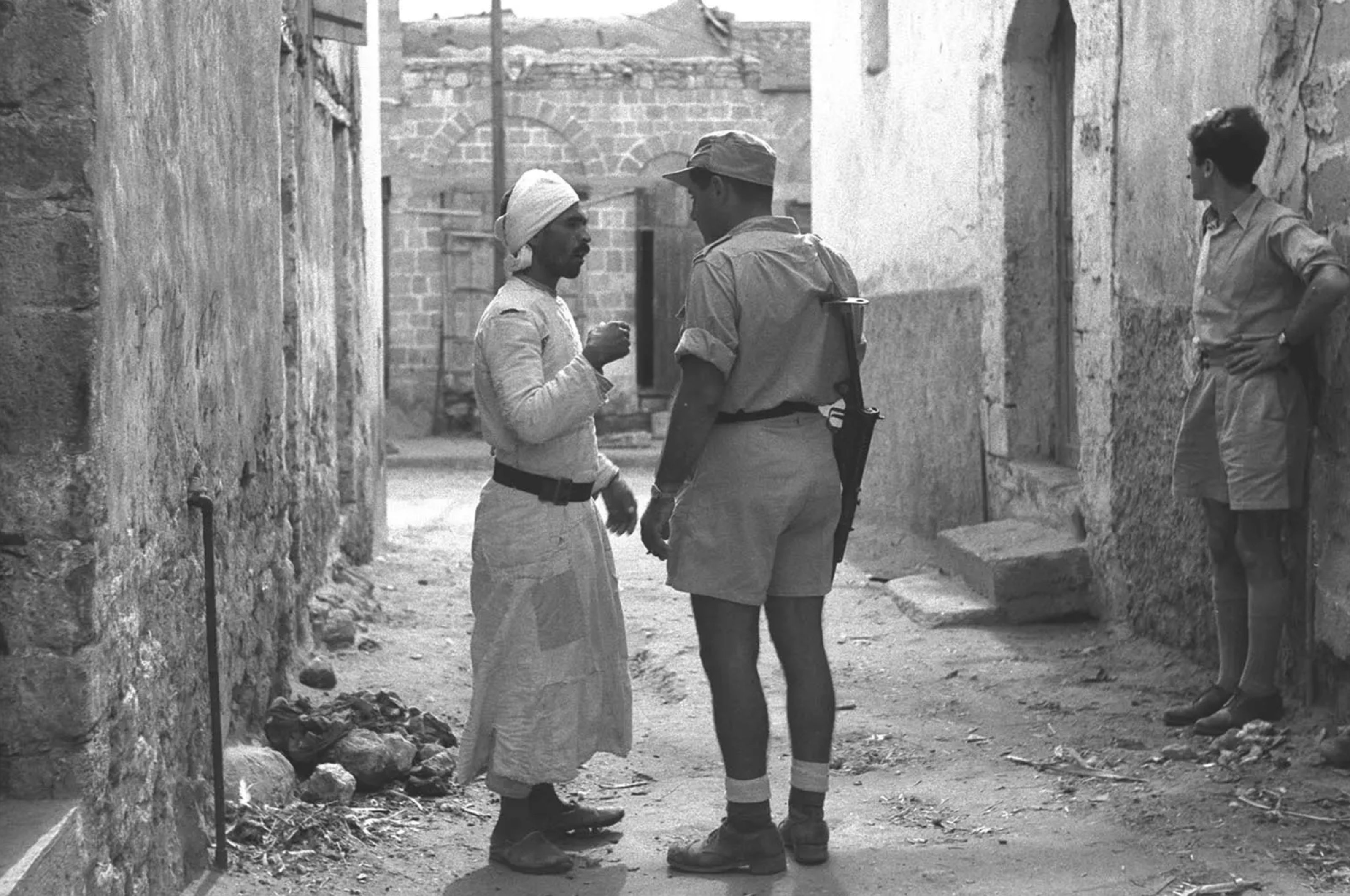
Although this war shares many of the typical characteristics of other colonial campaigns, it also possesses very specific characteristics, as it was fought by and on behalf of the Zionist movement, which itself was and is a very particular colonial project. Further complicating this understanding is the fact that this colonial conflict, conducted with massive support from external powers, became over time a national confrontation between two new national entities, two peoples. Underlying this feature, and amplifying it, was the profound resonance for Jews, and also for many Christians, of their biblical connection to the historic land of Israel. Expertly woven into modern political Zionism, this resonance has become integral to it. A late-nineteenth-century colonial-national movement thus adorned itself with a biblical coat that was powerfully attractive to Bible-reading Protestants in Great Britain and the United States, blinding them to the modernity of Zionism and to its colonial nature: for how could Jews be "colonizing" the land where their religion began?
Given this blindness, the conflict is portrayed as, at best, a straight-forward, if tragic, national clash between two peoples with rights in the same land. At worst, it is described as the result of the fanatical, inveterate hatred of Arabs and Muslims for the Jewish people as they assert their inalienable right to their eternal, God-given homeland. In fact, there is no reason that what has happened in Palestine for over a century cannot be understood as both a colonial and a national conflict. But our concern here is its colonial nature, as this aspect has been as underappreciated as it is central, even though those qualities typical of other colonial campaigns are everywhere in evidence in the modern history of Palestine.
Characteristically, European colonizers seeking to supplant or dominate indigenous peoples, whether in the Americas, Africa, Asia, or Australasia (or in Ireland), have always described them in pejorative terms. They also always claim that they will leave the native population better off as a result of their rule; the "civilizing" and "progressive" nature of their colonial projects serves to justify whatever enormities are perpetrated against the indigenous people to fulfill their objectives. One need only refer to the rhetoric of French administrators in North Africa or of British viceroys in India. Of the British Raj, Lord Curzon said: "To feel that somewhere among these millions you have left a little justice or happiness or prosperity, a sense of manliness or moral dignity, a spring of patriotism, a dawn of intellectual enlightenment, or a stirring of duty, where it did not before exist—that is enough, that is the Englishman's justification in India."18 The words "where it did not before exist" bear repeating. For Curzon and others of his colonial class, the natives did not know what was best for them and could not achieve these things on their own: "You cannot do without us," Curzon said in another speech.19
For over a century, the Palestinians have been depicted in precisely the same language by their colonizers as have been other indigenous peoples. The condescending rhetoric of Theodor Herzl and other Zionist leaders was no different from that of their European peers. The Jewish state, Herzl wrote, would "form a part of a wall of defense for Europe in Asia, an outpost of civilization against barbarism."20 This was similar to the language used in the conquest of the North American frontier, which ended in the nineteenth century with the eradication or subjugation of the continent's entire native population. As in North America, the colonization of Palestine—like that of South Africa, Australia, Algeria, and parts of East Africa—was meant to yield a white European settler colony. The same tone toward the Palestinians that characterizes both Curzon's rhetoric and Herzl’s letter is replicated in much discourse on Palestine in the United States, Europe, and Israel even today.
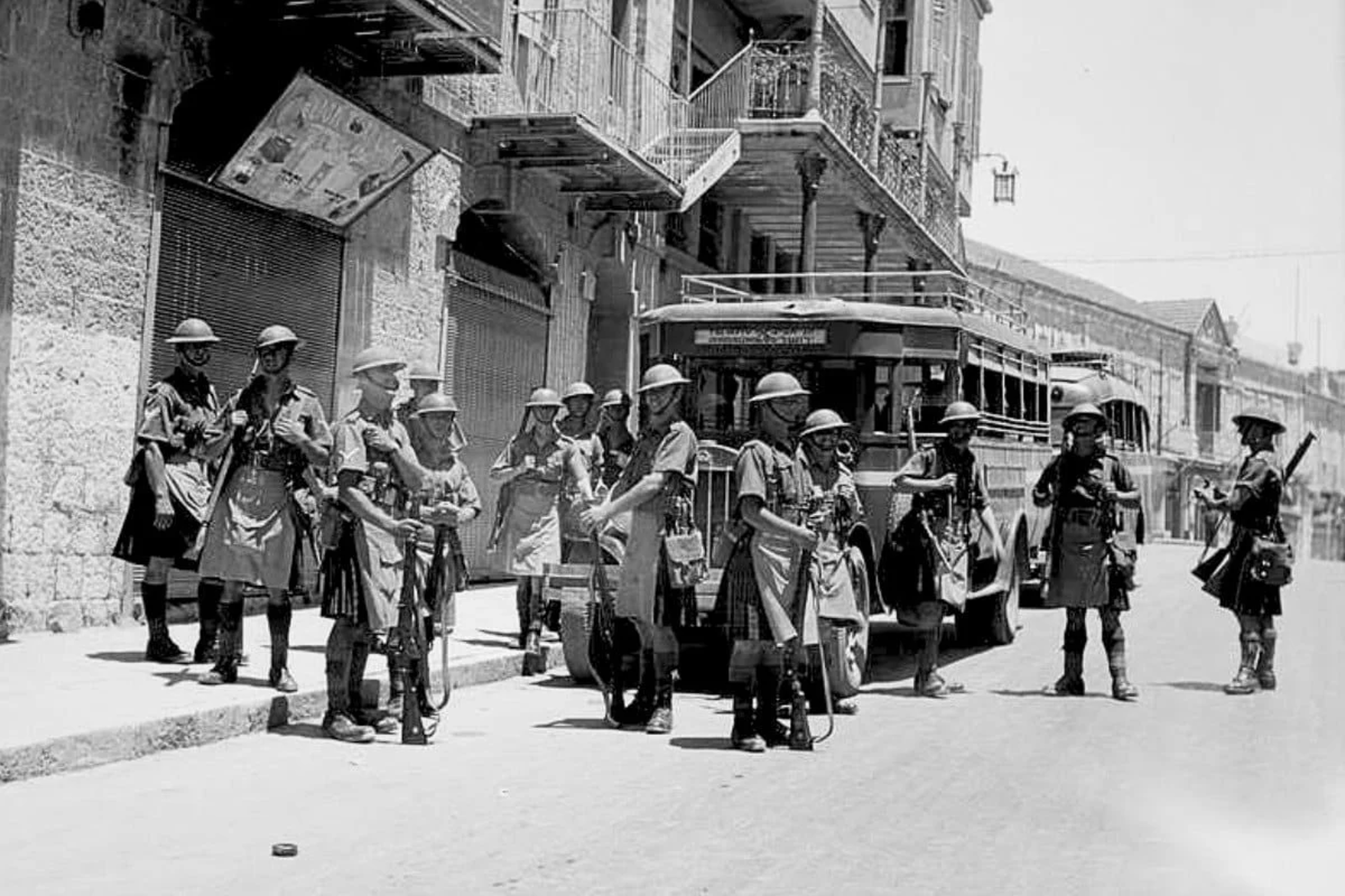
In line with this colonial rationale, there is a vast body of literature dedicated to proving that before the advent of European Zionist colonization, Palestine was barren, empty, and backward. Historical Palestine has been the subject of innumerable disparaging tropes in Western popular culture, as well as academically worthless writing that purports to be scientific and scholarly, but that is riddled with historical errors, misrepresentations, and sometimes outright bigotry. At most, this literature asserts, the country was inhabited by a small population of rootless and nomadic Bedouin who had no fixed identity and no attachment to the land they were passing through, essentially as transients.
The corollary of this contention is that it was only the labor and drive of the new Jewish immigrants that turned the country into the blooming garden it supposedly is today, and that only they had an identification with and love for the land, as well as a (God-given) right to it. This attitude is summed up in the slogan "A land without a people for a people without a land," used by Christian supporters of a Jewish Palestine, as well as by early Zionists like Israel Zangwill.21 Palestine was terra nullius to those who came to settle it, with those living there nameless and amorphous. Thus Herzl’s letter to Yusuf Diya referred to Palestinian Arabs, then roughly 95 percent of the country's inhabitants, as its "non-Jewish population.”
Essentially, the point being made is that the Palestinians did not exist, or were of no account, or did not deserve to inhabit the country they so sadly neglected. If they did not exist, then even well-founded Palestinian objections to the Zionist movement's plans could simply be ignored. Just as Herzl dismissed Yusuf Diya al-Khalidi's letter, most later schemes for the disposition of Palestine were similarly cavalier. The 1917 Balfour Declaration, issued by a British cabinet and committing Britain to the creation of a national Jewish homeland, never mentioned the Palestinians, the great majority of the country's population at the time, even as it set the course for Palestine for the subsequent century.
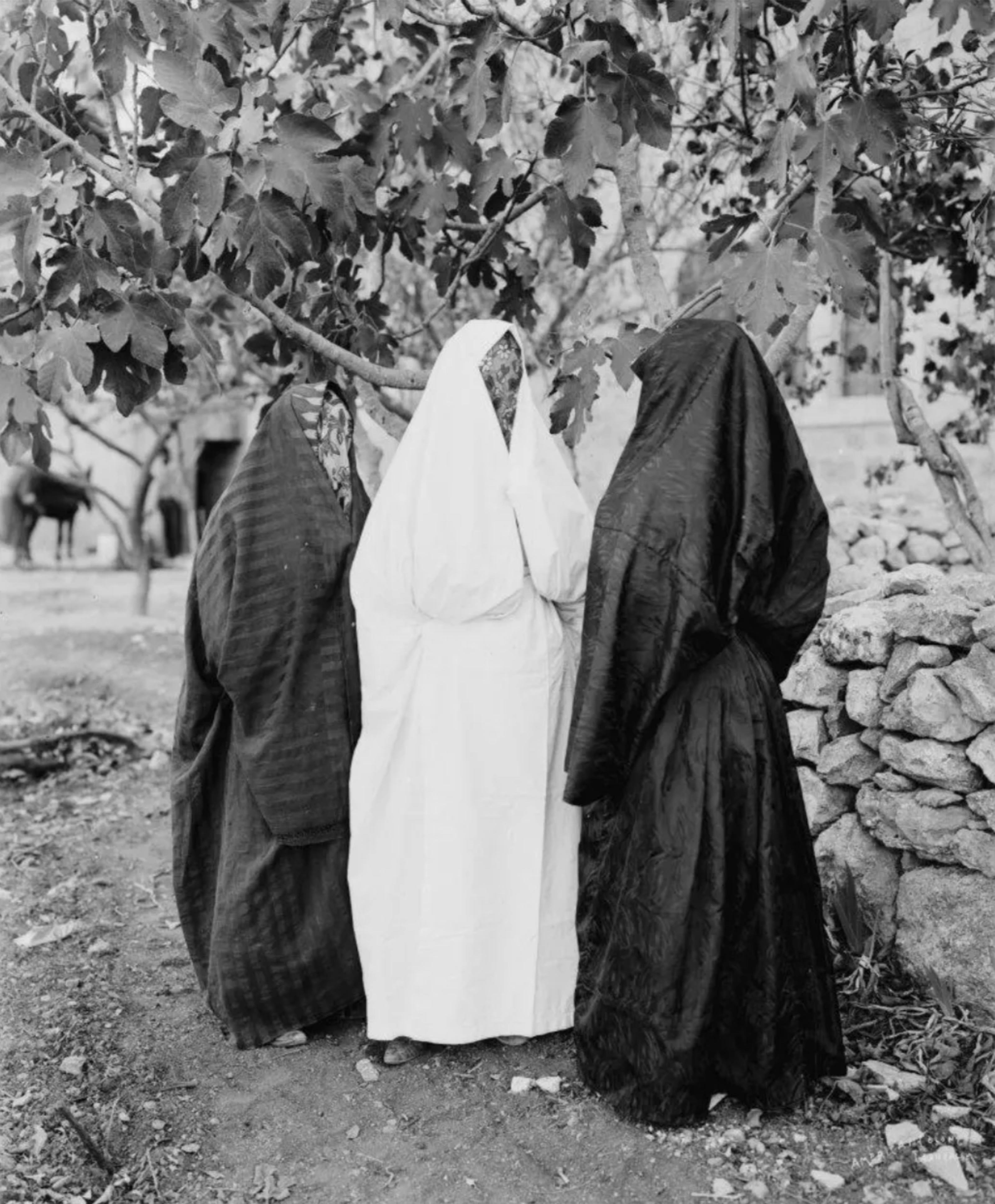
The idea that the Palestinians simply do not exist, or even worse, are the malicious invention of those who wish Israel ill, is supported by such fraudulent books as Joan Peters's From Time Immemorial, now universally considered by scholars to be completely without merit. (On publication in 1984, however, it received a rapturous reception and it is still in print and selling discouragingly well.)22 Such literature, both pseudo-scholarly and popular, is largely based on European travelers’ accounts, on those of new Zionist immigrants, or on British Mandatory sources. It is often produced by people who know nothing about the indigenous society and its history and have disdain for it, or who worse yet have an agenda that depends on its invisibility or disappearance. Rarely utilizing sources produced from within Palestinian society, these representations essentially repeat the perspective, the ignorance, and the biases, tinged by European arrogance, of outsiders.23
The message is also amply represented in popular culture in Israel and the United States, as well as in political and public life.24 It has been amplified via mass market books such as Leon Uris’s novel Exodus and the Academy Award-winning movie that it spawned, works that have had a vast impact on an entire generation and that serve to confirm and deepen pre-existing prejudices.25 Political figures have explicitly denied the existence of Palestinians, for example, former Speaker of the House Newt Gingrich: "I think that we've had an invented Palestinian people who are in fact Arabs." While returning from a trip to Palestine in March 2015, the governor of Arkansas, Mike Huckabee, said "There's really no such thing as the Palestinians."26 To some degree, every US administration since Harry Truman's has been staffed by people making policy on Palestine whose views indicate that they believe Palestinians, whether or not they exist, are lesser beings than Israelis.
Significantly, many early apostles of Zionism had been proud to embrace the colonial nature of their project. The eminent Revisionist Zionist leader Ze’ev Jabotinsky, godfather of the political trend that has dominated Israel since 1977, upheld by Prime Ministers Menachem Begin, Yitzhak Shamir, Ariel Sharon, Ehud Olmert, and Benjamin Netanyahu, was especially clear about this. Jabotinsky wrote in 1923: "Every native population in the world resists colonists as long as it has the slightest hope of being able to rid itself of the danger of being colonised. That is what the Arabs in Palestine are doing, and what they will persist in doing as long as there remains a solitary spark of hope that they will be able to prevent the transformation of 'Palestine' into the 'Land of Israel.’” Such honesty was rare among other leading Zionists, who like Herzl protested the innocent purity of their aims and deceived their Western listeners, and perhaps themselves, with fairy tales about their benign intentions toward the Arab inhabitants of Palestine.
Jabotinsky and his followers were among the few who were frank enough to admit publicly and bluntly the harsh realities inevitably attendant on the implantation of a colonial settler society within an existing population. Specifically, he acknowledged that the constant threat of the use of massive force against the Arab majority would be necessary to implement the Zionist program: what he called an "iron wall" of bayonets was an imperative for its success. As Jabotinsky put it: "Zionist colonisation… can proceed and develop only under the protection of a power that is independent of the native population—behind an iron wall, which the native population cannot breach."27 This was still the high age of colonialism, when such things being done to native societies by Westerners were normalized and described as "progress."
The social and economic institutions founded by the early Zionists, which were central to the success of the Zionist project, were also unquestioningly understood by all and described as colonial. The most important of these institutions was the Jewish Colonization Association (in 1924 renamed the Palestine Jewish Colonization Association). This body was originally established by the German Jewish philanthropist Baron Maurice de Hirsch and later combined with a similar organization founded by the British peer and financier Lord Edmond de Rothschild. The JCA provided the massive financial support that made possible extensive land purchases and the subsidies that enabled most of the early Zionist colonies in Palestine to survive and thrive before and during the Mandate period.
Unremarkably, once colonialism took on a bad odor in the post-World War II era of decolonization, the colonial origins and practice of Zionism and Israel were whitewashed and conveniently forgotten in Israel and the West. In fact, Zionism—for two decades the coddled stepchild of British colonialism—rebranded itself as an anticolonial movement. The occasion for this drastic makeover was a campaign of sabotage and terrorism launched against Great Britain after it drastically limited its support of Jewish immigration with the 1939 White Paper on the eve of World War II. This falling-out between erstwhile allies (to help them fight the Palestinians in the late 1930s, Britain had armed and trained the Jewish settlers it allowed to enter the country) encouraged the outlandish idea that the Zionist movement was itself anticolonial.
There was no escaping the fact that Zionism initially had clung tightly to the British Empire for support, and had only successfully implanted itself in Palestine thanks to the unceasing efforts of British imperialism. It could not be otherwise, for as Jabotinsky stressed, only the British had the means to wage the colonial war that was necessary to suppress Palestinian resistance to the takeover of their country. This war has continued since then, waged sometimes overtly and sometimes covertly, but invariably with the tacit or overt approval, and often the direct involvement, of the leading powers of the day and the sanction of the international bodies they dominated, the League of Nations and the United Nations.
Today, the conflict that was engendered by this classic nineteenth-century European colonial venture in a non-European land, supported from 1917 onward by the greatest Western imperial power of its age, is rarely described in such unvarnished terms. Indeed, those who analyze not only Israeli settlement efforts in Jerusalem, the West Bank, and the occupied Syrian Golan Heights, but the entire Zionist enterprise from the perspective of its colonial settler origins and nature are often vilified.
Many cannot accept the contradiction inherent in the idea that although Zionism undoubtedly succeeded in creating a thriving national entity in Israel, its roots are as a colonial settler project (as are those of other modern countries: the United States, Canada, Australia, and New Zealand). Nor can they accept that it would not have succeeded but for the support of the great imperial powers, Britain and later the United States. Zionism, therefore, could be and was both a national and a colonial settler movement at one and the same time.
RASHID KHALIDI is the author of eight books, among them Palestinian Identity, Brokers of Deceit, and The Iron Cage. His writing has appeared in The New York Times and The New York Review of Books, among many other publications. He is the Edward Said Professor of Modern Arab Studies at Columbia University in New York and coeditor of the Journal of Palestine Studies.
To purchase a copy of The Hundred Years' War on Palestine, please click here.
